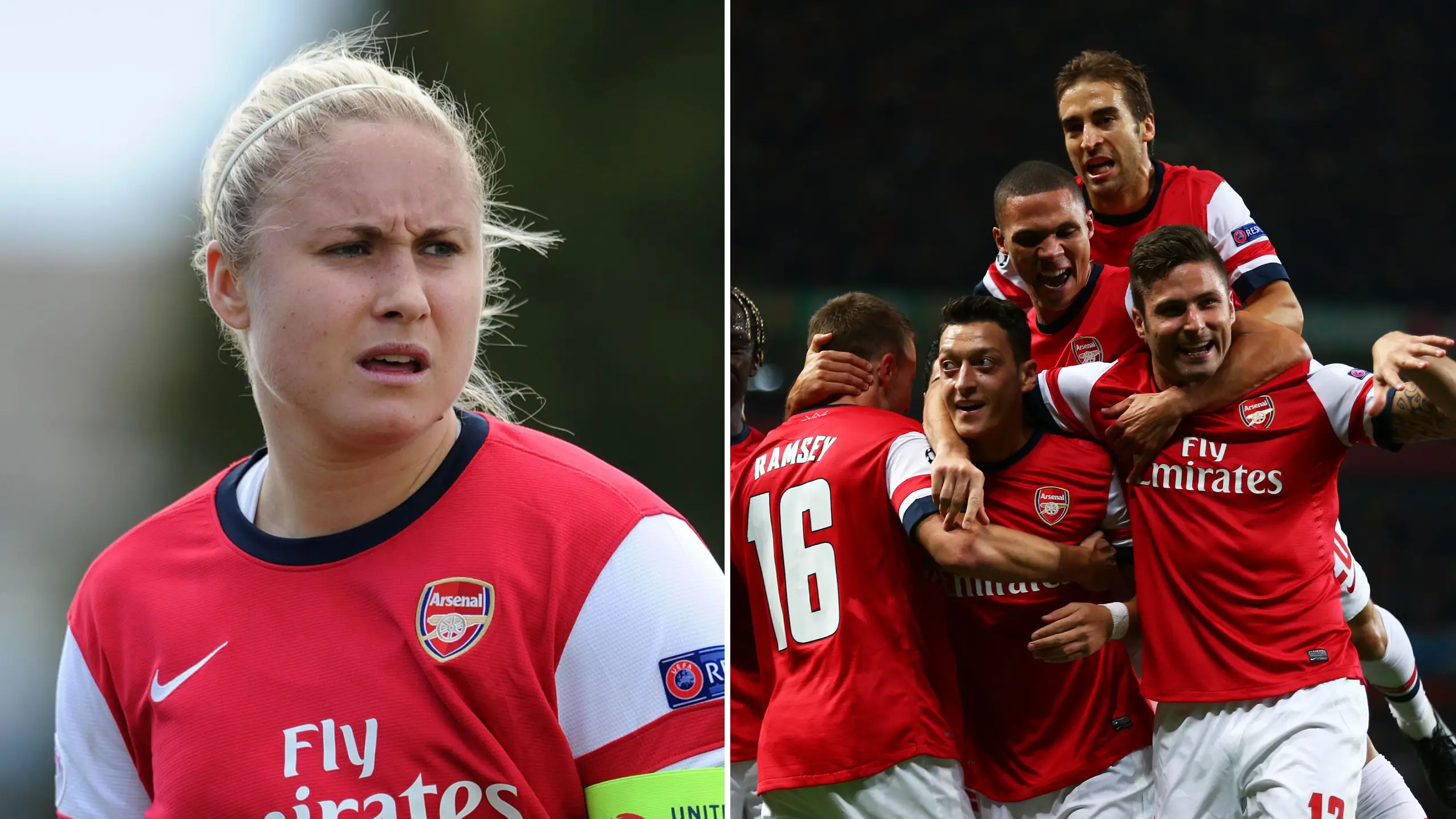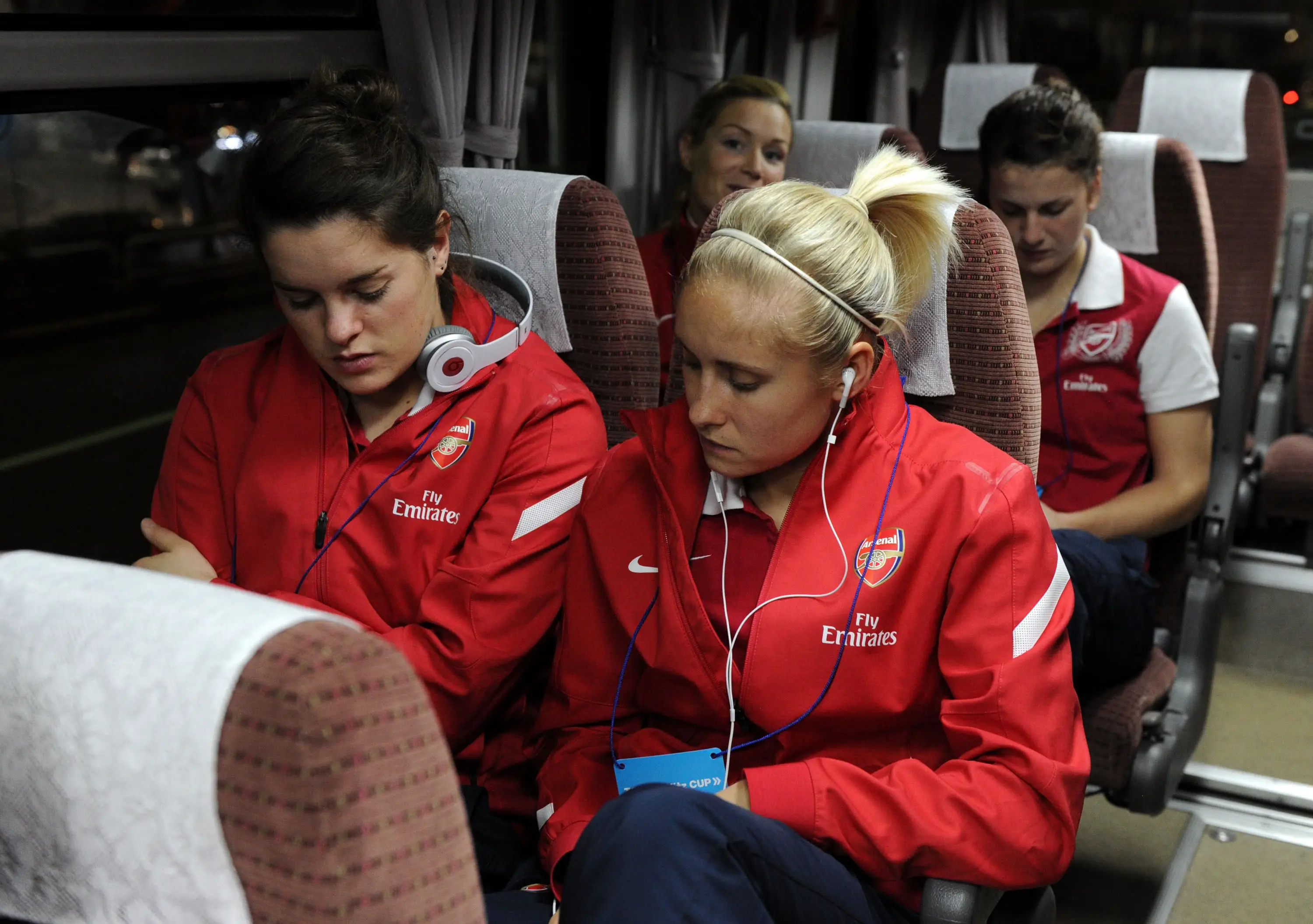
Former England captain Steph Houghton has detailed the shockingly low salary she received during her spell at Women’s Super League side Arsenal.
Houghton, who is widely regarded as one of the best defenders of her generation, joined the Gunners from Leeds Carnegie in 2010.
She would go on to play a crucial role in Arsenal's success as they won back-to-back Super League titles in 2011 and 2012, as well as two FA Cups and three Continental Cup titles.
But her importance to the team did not reflect in her 'pitiful' salary. In fact, Houghton was paid an annual wage of just £4,000.
Advert
It is said that sum could have increased to £9,000 based on bonuses and extra work as a part‑time coach and club ambassador but ultimately, it was a sign that things had to change.
"I put them figures in the book because I wanted people to know where we’ve come from and where we are now,’ Houghton told The Guardian. "Arsenal was the best club in England and that was their level."
She added: "Money was never really a driver for me. It was just about playing for Arsenal and winning trophies, but when you meet people that have got a lot more experience about what you should be earning, that’s when you think: ‘Right, things have to change.”
To put that salary into perspective, Mesut Ozil was Arsenal's highest paid men's player ahead of the 2013/14 campaign on £7.2 million per-year, according to Capology.
Theo Walcott and Lukas Podolski were reportedly on £5.2 million annually.
Houghton, who joined Manchester City in 2014, was also a part of a group that pushed for better pay for the Lionesses.
"When I looked at what [England’s men] were getting for commercial deals that really opened my eyes," she explained. "The men and women play for the national teams of the same country and yet they’re getting 15 times more than us.
"How is that fair? I got the bit between my teeth and I was like: ‘OK, we need to do something about that.’ That’s what I’m probably most proud of in terms of the stuff that we did off the pitch – to change how companies thought of us as athletes and to stop them taking the piss."

She added: "The fight for World Cup bonuses was a key moment. We were going into World Cups with no [financial] incentive, no chance of getting any prize money whatsoever but we ended up coming away with a biggish bonus for the World Cup in 2015 [when England finished third].
"For girls who could never put down a deposit on a house, it was life‑changing. That set the precedent. It became a normal conversation that we would sort the bonuses out well in advance of the tournament."
The FA pays its women's players the same as their male counterparts for representing England, both in terms of match fees and match bonuses. This parity has been in place since January 2020.
Topics: Womens Football, Womens Super League, Womens World Cup, England, Arsenal, Manchester City, Premier League